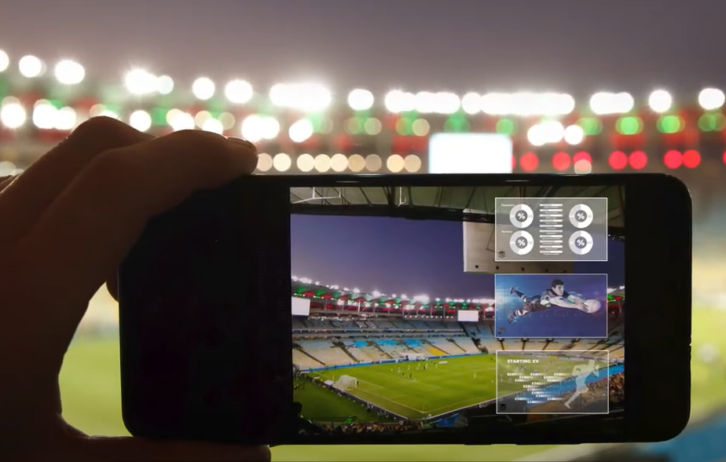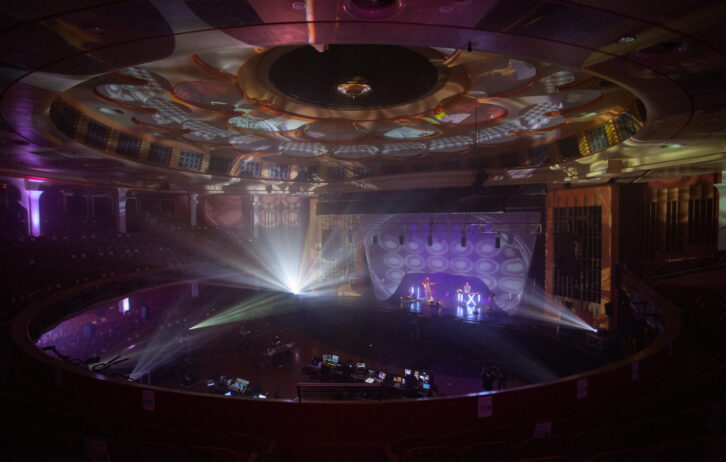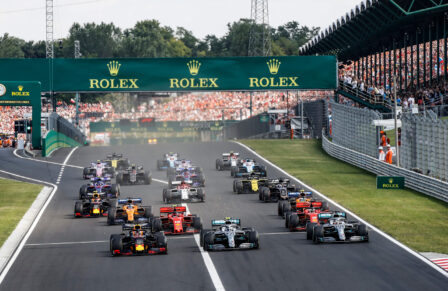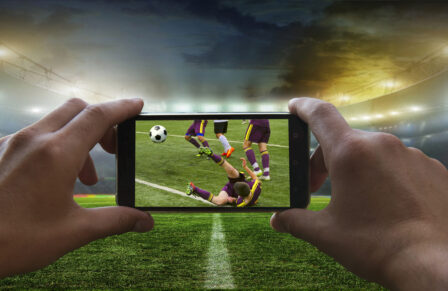The Commonwealth Games: the role of tech at multi-sport events
Posted 1 Aug 2022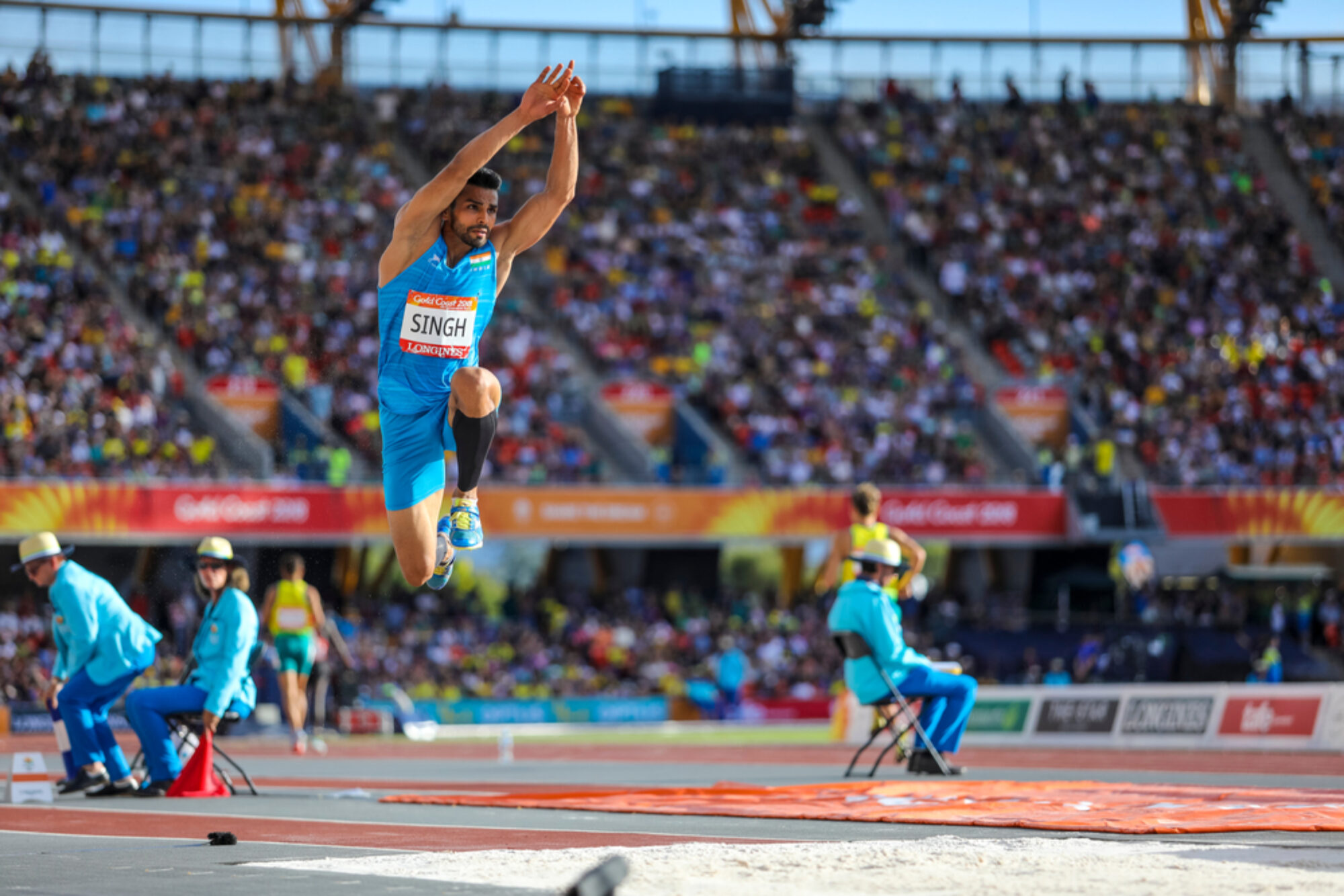
The Commonwealth Games: the role of tech at multi-sport events
Katy Ho, Head of Innovation Practice, Digital Catapult
If you consider yourself a sports aficionado, the launch of the Commonwealth Games last week won’t have escaped your attention. Nestled in the sporting calendar amongst the Women’s Euros and the European Sports Championships, the competition is being hosted by Birmingham this year, after the Commonwealth baton finished snaking its way across the UK.
This year the Games will include 19 sports and 18 para-sports across 14 different venues in the region. For events organisers, running an event of this scale and complexity is no mean feat. Technology performs a critical role in the delivery of smooth-running, multi-sport, multi-venue events – from telecoms and IT services, logistics, games management systems and broadcast operations.
As technology rapidly becomes more ubiquitous at sporting events – from Hawkeye and “goal line” technology to personal monitoring equipment for athletes – in the future, what emerging advanced digital technologies will have a lasting impact on events like the Commonwealth Games?
Here are my top three:
1. Wireless communications: tracking the action elsewhere
As 5G connectivity matures, in-stadia apps to enhance spectator experiences will become a central feature of live sporting events.
Due to its low latency and ability to connect thousands of devices simultaneously, 5G Broadcast is efficient and environmentally low-impact – particularly suited to large sporting events when demand for connectivity is high. When deployed in stadiums, 5G Broadcast could power new features on mobile apps, allowing viewers to access new live statistics, fast action replays, or even a different view or perspective of the event.
Due to its low latency and ability to connect thousands of devices simultaneously, 5G Broadcast is efficient and environmentally low-impact – particularly suited to large sporting events when demand for connectivity is high.
Katy Ho Digital Catapult Head of Innovation Practice
Some sporting events, in particular swimming and athletics, can be over in the blink of an eye – with viewers potentially missing crucial action. And, with events spread over so many locations, like the triathlon, spectators may wish to view action from elsewhere in the venue on their devices during a period of downtime. The lightning-fast speeds enabled by 5G Broadcast could make this a reality.
As part of the 5G VISTA project, Digital Catapult developed a prototype app powered by 5G Broadcast, enabling attendees to switch between multi-angle camera views of sporting events from a device. Our accompanying report looks in more detail at how something like this could reasonably be commercialised.
At the Games of the future, a VISTA-style app would make unmissable sporting action, unmissable
2. Augmented and virtual reality: immersing yourself in the event
Large-scale events like the Commonwealth Games are not just a celebration of sporting prowess, but an ode to the culture of their host cities. Back in 2012, 900 million people worldwide tuned in for the London Olympic Games opening ceremony – as the Queen skydived out of a helicopter with James Bond, David Beckham sped up the Thames in a speedboat, and Mary Poppins, Voldemort, Brunel and Dizzee Rascal (among others) made appearances. .
Cultural activities linked to major sporting events are a big draw for attendees, bonding a sporting event to its location and giving audiences a sense of place. According to VisitBritain, tourists who come to the UK to watch sports stay longer and spend more: about 2.2 million visits annually include ‘going to live sports events’ with those visitors spending £2.3 billion in total during their stay. This year, the West Midlands has been holding a six month long festival associated with the Games, celebrating music, arts and the communities of the region. Good Living VR, for example, has created an online, immersive virtual reality artwork of a virtual park, with help from indigenous artists from around the Commonwealth.
Meanwhile, immersive experiences at sporting events themselves are increasingly deepening audience engagement. In the 2014 Commonwealth Games – while arguably less sophisticated than it would be now – a 360-degree camera captured video and sound from the gymnastics events and sent it to a headset located in the Glasgow Science Centre. More recently, we’ve witnessed partnerships like one between Nexus Studios and Verizon explore augmented reality experiences for audiences at live American football matches.
And Digital Catapult, with multiple partners, trialled a 5G powered festival earlier in 2022, demonstrating that not only can you have 5G connected distributed sporting events, but the cultural programme that runs alongside can also bring together people from all around the world.
Again, strides in in-stadia 5G connectivity will help to amplify and refine these experiences, reducing delays on visual and audio streams and making them as sharp as possible.
3. Pinpointing waste: cleaning up large-scale events
Location-based technologies are being firmly embedded widely in UK infrastructure, and their applications across all industries will continue to grow. From the Internet of Things (IoT) to sensor tracking and GPS, connecting physical objects and sensors to networks allows us to collect invaluable data, unlock new insights and make smarter decisions.
In industry, such technologies can allow organisations to monitor the condition of their products in real-time, or pinpoint waste in the value chain and change the way they design and manufacture their goods.
In the sporting realm, sensor-driven data could help us better manage crowds or even clean up our cities. As an example, smart technology company North will use sensor driven data to measure, monitor and report real-time air quality conditions before, during and after the Commonwealth Games, in an effort to support Birmingham 2022’s ambition to become the first Commonwealth Games to establish a carbon-neutral legacy.
Another example we’re seeing in this year’s Commonwealth Games is the police using mapping technology – aerial images to create 3D maps – to help keep spectators safe during the Commonwealth Games.
The events of the future: going for gold
The global sports technology market was valued at USD 11.70 billion in 2020 and is expected to grow by 16.8% from 2021 to 2028. There’s a huge opportunity for the application of advanced digital technologies – for spectators, for tourists, for venues, for the athletes and for host cities. If we’re to truly maximise the opportunities advanced digital technologies can bring to sporting events, efforts should be underpinned by driving improvements to attendee experience with new spectator experiences, boosting in-stadia connectivity, and improving events management through clever data tracking.
To read more about 5G VISTA, click here.
